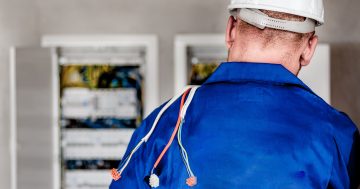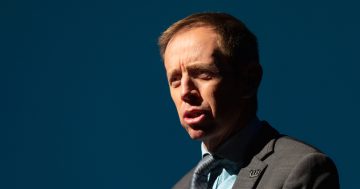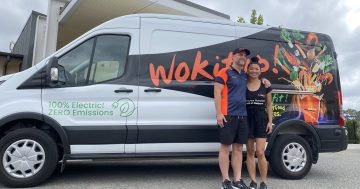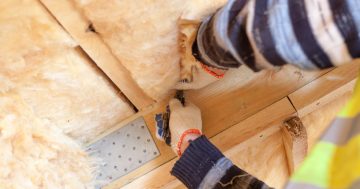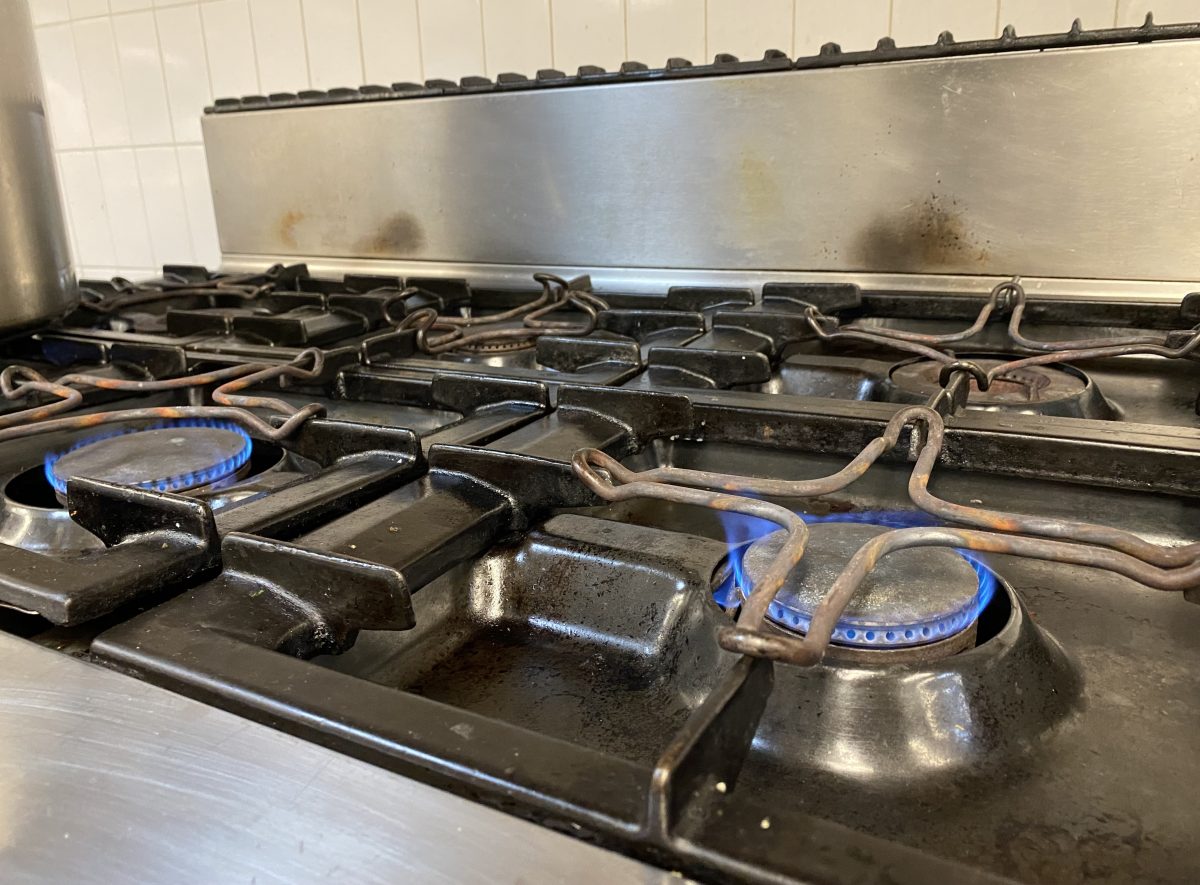
Cooking with gas will soon no longer be an option in new builds across the ACT following the passage of a new legal framework. Photo: Claire Fenwicke.
The installation of gas connections into new builds is expected to be prohibited in Canberra by the end of the year, with the legislative framework to allow the change passed into law.
The move has already attracted backlash, with some groups saying it will lock in higher emissions and costs.
The Legislative Assembly voted on the Climate Change and Greenhouse Gas Reduction (Natural Gas Transition) Amendment Bill 2022 on Thursday (8 June).
Minister for Water, Energy and Emissions Reduction Shane Rattenbury said preventing new gas connections was the next necessary step in transitioning Canberra into a zero-emission city.
“This legislation marks a significant milestone in the ACT’s energy transition, setting the framework to prohibit new gas connections in the ACT. The first step in phasing out gas completely is to prevent the installation of any new gas,” he said.
“This bill ensures that a future regulation to prevent new gas connections will not conflict with the gas distributor’s obligations to provide connections under National Energy Laws that apply in the ACT.
“Utilising the legislative framework established in the legislation, I expect regulation to be in place by the end of the year, prohibiting new gas connections in new suburbs or new infill developments.”
He argued research showed electricity was the most efficient, affordable and feasible energy source to replace fossil fuel gas use and that the Territory already had a “strong track record” of electrification.
“Canberra is already leading the way, with Ginninderry and the medium density housing area of Swinger Hill in Phillip, which was built in 1972, having proven that living in a cold climate without gas mains connections is not only possible but is more cost-effective,” Mr Rattenbury said.
“The suburb of Jacka is on track to be the second all-electric suburb in the Territory, and future stages of Whitlam and Denman Prospect are also planned to be all-electric.”
Mr Rattenbury said data from the Australian Energy Regulator showed net gas network connection growth in the Territory was slowing, but this wasn’t due to the declining rate of new connections.
“This is due to a high rate of disconnections from the network … what this means is that people are paying to switch to electric, whilst developers continue to include gas as standard in many new developments,” he said.
“This is why the government needs to act.”
Mr Rattenbury said the next step was to continue consultation regarding the potential shape and application of the future regulation to ensure the government understood the consequences to developers, those transitioning off gas and the electricity network.
“What is clear from consultation to date is that community members and stakeholders are concerned that allowing developers to continue to use gas will lead to significant cost and barriers to transition for future owners,” he said.
“Consultation has also shown that the community is concerned about future costs associated with existing users disconnecting from the gas network.”
The disconnection of existing gas users is outside the scope of the proposed regulatory change, but a path towards electrification will be outlined in the government’s Integrated Energy Plan to be delivered later in the year.
The government has already partnered with consumer advocacy group CHOICE to provide advice and solutions for people looking to electrify their homes.
Mr Rattenbury stressed now was the time for people to start preparing for the change, with the plan to make Canberra an all-electric city by 2045.
The move has been met with opposition by some groups, who say the move is ideologically driven and takes choice out of people’s hands.
The Australian Pipelines and Gas Association (APGA) said the ACT Government was ensuring Canberrans would now face higher emissions, higher costs and zero choice as a result of the “one-size-fits-all” policy.
APGA chief executive Steve Davies said while the group supported measures to reduce household emissions by phasing out natural gas, they advocated for a dual pathway of electrification and renewable gases to meet net zero by 2045.
“No one is arguing for natural gas to remain long-term, but the fastest and most cost-efficient way to decarbonise is through a dual pathway, which includes electrification and renewable gas,” he said.
“Not a gas ban which levies tens of thousands of dollars in additional costs to households during a cost-of-living crisis.”
He argued that every home that electrified would increase the Territory’s reliance on NSW’s coal-fired generation and increase overall emissions in the foreseeable future.
“This is a short-sighted decision that’s worse for the environment and for consumers,” Mr Davies said.
“The energy transition is not a race between technologies. It will require a collective effort where we harness the strengths of each technology available to deliver the best outcome.”












